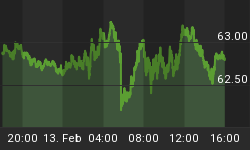The reasons for last week's surprise 25bp rate hike from the Bank of England (BoE) are starting to become pretty clear. Inflation jumped more than expected in December, right before the crucial January pay round, and just as the labor market may be tightening again.
Yesterday we learned that (EU-harmonized) consumer price inflation hit an annual 3.0% in December - the highest since the series began in January 1997, and once again above the BoE's 2.0% target. BoE Governor King was saved the embarrassment of having to write an explanatory open letter to the government - just. If CPI deviates by more than one percentage point either way from the target (i.e., if it hits 3.1%), the Governor has to publicly explain why, what the Bank intends to do about it, how long it will take to get back to the target, and how the Bank's strategy meets the government's monetary objectives. No governor has yet had to write such a letter.

In addition to the CPI numbers, the members at last week's Monetary Policy Committee (MPC) meeting will also have seen the data on December's retail price inflation, which hit a 15-year high of 4.4%, up sharply from 3.9% in November. The RPI measure is the one most often used in setting wage deals - hence the MPC must be concerned about the threat of wage-push inflation.
Today's average earnings data for September-November was fairly sanguine - an annual increase of 4.1%, the same as in August-October. While this is down from the peak of 4.4% seen mid-year, the trend appears to be heading upward again. More to the point, with RPI jumping so sharply at year-end, January's pay deals could be far higher.

As to the labor market, the number of people claiming jobless benefits fell by 5,500 in December, while November's drop was revised from 5,700 to an even sharper 7,900. Claimant count unemployment has now fallen for three months in a row. The internationally-comparable ILO measure of unemployment for September-November remained at 5.5%, the same rate as in the June-August period.

The BoE had anticipated an inflation spike around the turn of the year, but December's data seems to have surprised on the upside. All told, at least one more rate hike is likely before end-Q2.
















